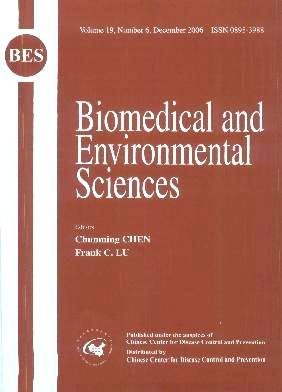Severe Acute Respiratory Syndrome-Retrospect and Lessons of 2004 Outbreak in China
-
Key words:
- Severe acute respiratory syndrome (SARS) /
- Outbreak /
- Bio-safety /
- Laboratory /
- China
Abstract: Objective To summarize lessons learned from an outbreak of severe acute respiratory syndrome (SARS) in China during the spring of 2004. Methods Data of SARS cases were officially reported by Beijing Municipal Center for Disease Control and Prevention (BCDC) and Anhui Provincial Center for Disease Control and Prevention (APCDC) and results of epidemiological investigations were collected and analyzed. Results Three generations of 11 cases of SARS were identified during the outbreak. Initial two cases were most likely to be infected in Diarrhea Virus Laboratory of National Institute of Virology, China Centers for Disease Control and Prevention and main mode of transmission was direct contact with SARS patients. Delay in detecting initial case resulted in spread of the illness at hospitals and communities with two generations of secondary cases. Conclusions SARS outbreak in 2004 has yielded following lessons for public health globally. (1) Lab bio-safety programs should be made and should be strictly abided by. Studies in highly pathogenic viruses such as SARS coronavirus should be utmost cautious. (2) Management systems of occupational exposure to virus and disease surveillance need to be strengthened to take all risk factors into account so as to detect potential patients with infectious disease as early as possible.
| Citation: | WAN-NIAN LIANG, TAO ZHAO, ZE-JUN LIU, BAO-YING GUAN, XIONG HE, MIN LIU, QI CHEN, GAI-FEN LIU, JIANG WU, RUO-GANG HUANG, XUE-QIN XIE, ZHE-NGLAI WU. Severe Acute Respiratory Syndrome-Retrospect and Lessons of 2004 Outbreak in China[J]. Biomedical and Environmental Sciences, 2006, 19(6): 445-451. |







 Quick Links
Quick Links
 DownLoad:
DownLoad: